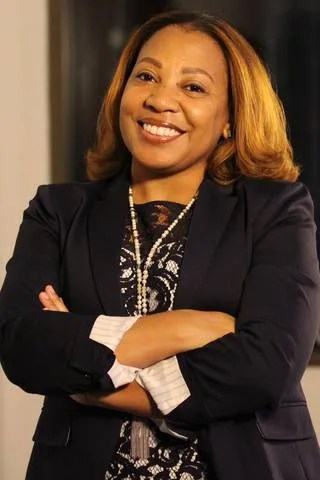
Chikia Barnes-Thompson
Resource Manager
Chikia Barnes-Thompson got her start developing budgets out of necessity. NASA’s Heliophysics Division, where she’d been hired to do solar astronomy education and outreach, was low on staff. She was working toward a degree in finance and marketing, and seized the opportunity to both help out and get some hands-on experience.
The effort sparked her interest in a career managing money and budgets ― one that she’d previously decided against. “I’ve always loved working with people, and I thought people working with budgets and accounting work alone, so I thought it was not something I would enjoy doing,” she said. “But when I realized how important it was to the success of the mission or project, it was just sort of something I fell in love with.”
Her family was less surprised. Her father had always told her she should be a lawyer or managing large amounts of money based on her sharp childhood negotiating skills. “I used to tell him how it would save him money to buy me certain things, because it was on sale now and for Christmas it won’t be on sale. I’d already worked it out,” she recalled. “Now when I’m working with project managers they say, ‘We don’t have the money for that,’ and I say, ‘Yes, we do — I’ve already worked out the numbers.’
“I got my first job in budget on a major project and my dad was like, ‘Perfect fit for you.’”
Chikia was born in a small town in Arkansas, but grew up in a U.S. Air Force family and traveled often. She spent portions of her childhood and teenage years living in Germany. She was the single mother of an infant and attending the University of Maryland University College full-time when she first started working for NASA, also full-time. “I wanted to be really successful so I was working a lot, overtime, really putting in my best effort. I wanted to go far at NASA,” she said. Juggling the trio of roles was often overwhelming. “I don’t encourage that of anyone,” she said. “It’s not the best path. However it was my path, and it shaped to be who I am today, and I am grateful for that experience.”
Chikia started working at Goddard Space Flight Center, Maryland, in 2001, spending seven years working as a joint education and public outreach lead and mission business support lead in the Heliophysics Division, which studies the Sun. She became a junior resource analyst in the Earth Sciences Division, then a senior resource analyst for NASA’s Aqua Mission, which studies Earth’s water cycles, in 2010. She spent four years in the Earth Sciences Division as a financial manager and a year in the Explorations and Science Communications Division as a deputy program business manager before joining the Hubble team in 2017.
Today, as deputy project manager for resources for the Hubble Space Telescope, she directly manages and supervises the day-to-day financial activities for the mission. She’s responsible for making sure that people working on the Hubble project are able to purchase the items they need to accomplish the telescope’s mission, analyzing costs, answering questions during the process of creating the budget, explaining the budget to people in charge, and providing information on the resources available for a mission.
She is also program business manager for the Astrophysics Program Division, overseeing multiple projects and the team of financial managers and resource analysts that works on them.
“Maybe engineers know they can build something, or hire someone, but they don’t know how much it costs — that’s where I come in,” she said. “Or maybe they have to do another six months of working on something. Well, what does that look like, what does it cost, how does it tie to schedule, or what are the financial impacts if deliverables are not delivered on time? Budget is important to mission success and a primary driver for all the important things we do here at NASA.”
In her spare time, Chikia enjoys traveling internationally and trying new foods. She has two children, a daughter and a son. “One of the things I enjoy is that I have the opportunity to mentor people the way I was mentored,” she said. “Here at NASA, people come to me for help with careers. It’s my passion to pass on all that I know ― like someone did for me ― to help me with my career. It’s that teaching part that I really, really enjoy — helping others. It’s my passion. I believe no one is put on this Earth for self, that’s why my fulfillment comes from the good I can do in this world.”
